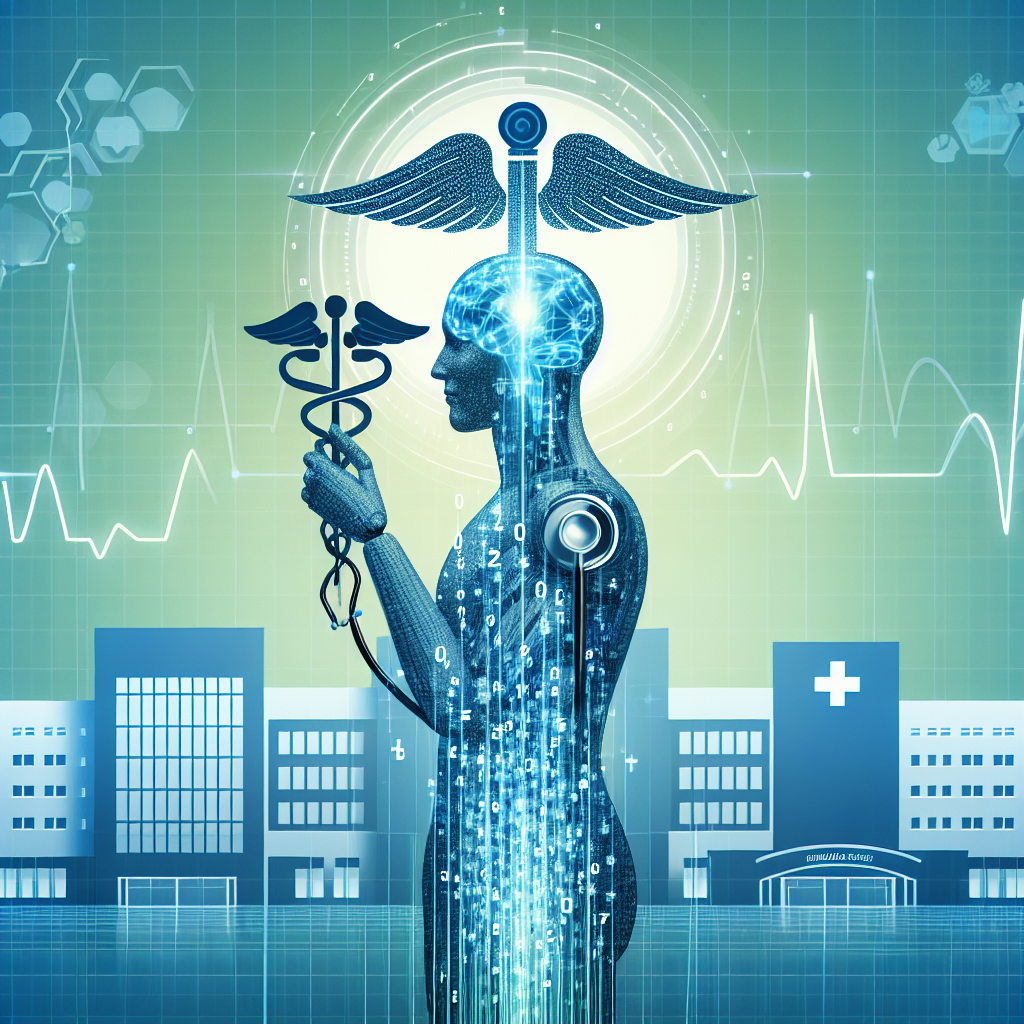Artificial Intelligence (AI) has been making significant waves in the healthcare industry, revolutionizing public health services and transforming the way we approach medical care. From early detection of diseases to personalized treatment plans, AI is playing a crucial role in improving patient outcomes and reducing healthcare costs. In this article, we will explore the various ways AI is transforming public health services and address some frequently asked questions about AI in healthcare.
Early Detection and Diagnosis
One of the key areas where AI is making a significant impact in healthcare is in the early detection and diagnosis of diseases. AI algorithms can analyze vast amounts of medical data, including patient records, lab results, and imaging scans, to identify patterns and trends that may indicate the presence of a disease. This can lead to earlier detection of conditions such as cancer, heart disease, and diabetes, allowing for prompt intervention and treatment.
For example, AI-powered imaging technology has been developed to assist radiologists in detecting abnormalities in medical scans such as X-rays, MRIs, and CT scans. These algorithms can help identify cancerous tumors, blood clots, and other abnormalities with a high degree of accuracy, reducing the risk of misdiagnosis and improving patient outcomes.
Personalized Treatment Plans
Another significant benefit of AI in healthcare is its ability to create personalized treatment plans for patients based on their individual medical history, genetic makeup, and lifestyle factors. By analyzing data from electronic health records, genetic tests, and wearable devices, AI algorithms can help healthcare providers tailor treatment plans to meet the specific needs of each patient.
For example, AI-powered predictive analytics can help doctors predict how a patient will respond to a particular medication or treatment based on their genetic profile and past medical history. This can help avoid trial-and-error approaches to treatment and improve the overall effectiveness of care.
Remote Monitoring and Telemedicine
AI technologies are also transforming public health services by enabling remote monitoring and telemedicine services. With the rise of wearable devices and mobile health apps, patients can now monitor their health status in real time and communicate with healthcare providers remotely. AI algorithms can analyze the data collected from these devices to detect early signs of health problems and provide timely interventions.
Telemedicine platforms powered by AI can also provide virtual consultations, prescriptions, and follow-up care to patients, especially those in remote or underserved areas. This can help improve access to healthcare services and reduce the burden on traditional healthcare facilities.
Healthcare Administration and Resource Allocation
AI is also revolutionizing healthcare administration by streamlining processes, improving efficiency, and optimizing resource allocation. AI-powered systems can automate administrative tasks such as appointment scheduling, billing, and medical coding, allowing healthcare providers to focus more on patient care. AI algorithms can also analyze data to identify trends and patterns in patient populations, helping healthcare organizations allocate resources more effectively and improve overall operational efficiency.
Frequently Asked Questions about AI in Healthcare
Q: How secure is patient data when using AI in healthcare?
A: Patient data security is a top priority in healthcare, and AI technologies are subject to strict regulations and guidelines to ensure the privacy and security of patient information. Healthcare organizations must comply with laws such as the Health Insurance Portability and Accountability Act (HIPAA) to protect patient data from unauthorized access or disclosure.
Q: Will AI replace healthcare professionals?
A: While AI technologies can automate certain tasks and assist healthcare professionals in decision-making, they are not designed to replace human healthcare providers. AI is meant to complement the skills and expertise of doctors, nurses, and other healthcare professionals, allowing them to focus on more complex and critical aspects of patient care.
Q: How affordable is AI technology for healthcare organizations?
A: The cost of implementing AI technology in healthcare can vary depending on the size and complexity of the organization, the type of AI applications being used, and other factors. However, as AI technology becomes more widespread and accessible, the costs are expected to decrease, making it more affordable for healthcare organizations of all sizes.
Q: What are the ethical implications of using AI in healthcare?
A: Ethical considerations are an important factor when implementing AI in healthcare. Issues such as data privacy, bias in algorithms, and patient consent must be carefully addressed to ensure that AI technologies are used responsibly and ethically. Healthcare organizations must adhere to ethical guidelines and standards to protect patient rights and ensure the ethical use of AI in healthcare.
In conclusion, AI is revolutionizing public health services by enabling early detection and diagnosis of diseases, creating personalized treatment plans, facilitating remote monitoring and telemedicine, and optimizing healthcare administration. While there are still challenges and ethical considerations to address, the potential benefits of AI in healthcare are vast and promising. As technology continues to evolve, we can expect to see even more innovations and advancements in the field of healthcare, improving patient outcomes and transforming the way we deliver and receive medical care.

